In the digital landscape, user authentication is a foundational element for securing web applications and ensuring a personalized experience. ExpressJS, a versatile Node.js framework, in combination with JSON Web Tokens (JWT), provides a powerful solution for implementing secure and efficient authentication mechanisms. In this blog, we'll delve into the world of user authentication using ExpressJS and JWT, exploring how to create a robust authentication system that safeguards user data, enhances user experience, and ensures secure interactions. By understanding the integration of ExpressJS with JWT, you can build applications that prioritize security and provide seamless access control. Additionally, we'll introduce you to our Hire ExpressJS Developer Services, which can help you implement a reliable authentication system for your ExpressJS applications.
The Role of JWT in Authentication: JSON Web Tokens (JWT) are a compact and self-contained way to transmit information between parties. In the context of authentication, JWTs serve as tokens that verify the identity of users, granting them access to specific resources based on their authorization level.
Implementing Authentication with ExpressJS and JWT:
- Installing Dependencies: Begin by creating an ExpressJS application and installing the necessary packages, including `jsonwebtoken` for JWT functionality.
- User Registration and Login: Implement user registration and login routes, where user data is validated and compared against stored credentials in a database.
- Generating JWTs: After successful login, generate JWTs containing user-specific information and a secret key for signing the tokens.
- Authentication Middleware: Create a middleware function that verifies the validity of incoming JWTs, ensuring that users are authenticated before accessing protected routes.
- Protecting Routes: Implement JWT-based protection for routes that require authentication. Users can access these routes only if they present a valid JWT.
- Token Expiry and Renewal: Set an expiration time for JWTs to enhance security. Implement token renewal mechanisms to provide seamless user experiences.
- Logging Out: Allow users to log out by invalidating or deleting their JWTs on the client side.
Hire ExpressJS Developer Services: While implementing authentication with ExpressJS and JWT offers enhanced security, ensuring seamless integration and optimal practices requires expertise. Our Hire ExpressJS Developer Services offer valuable support:
- Collaborate with skilled ExpressJS developers experienced in building secure authentication systems with JWT.
- Expedite your project's development by leveraging our knowledge and best practices.
- Ensure seamless integration of authentication components, enhancing your application's protection and user experience.
- Access ongoing support and maintenance to keep your authentication system up-to-date and effective.
Conclusion:
User authentication is a cornerstone of web application security, and integrating JSON Web Tokens (JWT) with ExpressJS empowers you to create a robust and efficient authentication system. By understanding the symbiotic relationship between ExpressJS and JWT, you can build applications that prioritize user security, access control, and personalized experiences. As you embark on this authentication journey, consider CloudActive Labs as your partner. Our Hire ExpressJS Developer Services provide the expertise needed to elevate your authentication strategies, ensuring your applications are built with precision, security, and user-centricity in mind. Reach out to CloudActive Labs today and unlock the full potential of ExpressJS and JWT authentication for your business.
























